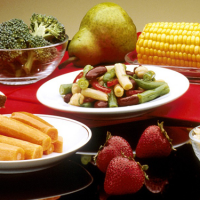Nutrition for the Elderly: A Guide to Healthy Aging
As we age, our nutritional needs change significantly. A well-balanced diet tailored to the elderly plays a crucial role in maintaining overall health, preventing chronic diseases, and improving quality of life. In this article, we delve into the essential aspects of nutrition for the elderly, providing actionable insights to support optimal health during the golden years.
The Importance of Proper Nutrition in the Elderly
Proper nutrition is fundamental to supporting the body’s natural aging process. As metabolism slows and physical activity often decreases, the body’s energy requirements decline. However, the need for vital nutrients remains constant or even increases. Failing to meet these nutritional needs can lead to malnutrition, weakened immunity, reduced muscle strength, and cognitive decline.
Key Nutrients for the Elderly
1. Protein: Building and Maintaining Muscle Mass
Protein is critical for preventing muscle loss (sarcopenia), which is common in older adults. Adequate protein intake supports muscle repair, boosts immunity, and enhances overall strength.
- Sources of protein: Lean meats, poultry, fish, eggs, dairy products, legumes, nuts, and seeds.
- Recommended intake: Approximately 1.0–1.2 grams of protein per kilogram of body weight daily.
2. Calcium and Vitamin D: Supporting Bone Health
Osteoporosis and bone fractures are significant concerns in the elderly. Calcium and vitamin D are essential for maintaining bone density and preventing fractures.
- Sources of calcium: Dairy products, fortified plant-based milk, leafy greens, and almonds.
- Sources of vitamin D: Fatty fish, fortified cereals, eggs, and exposure to sunlight.
- Recommended intake: 1,200 mg of calcium and 800–1,000 IU of vitamin D per day.
3. Omega-3 Fatty Acids: Promoting Heart and Brain Health
Omega-3 fatty acids are vital for reducing inflammation, supporting heart health, and maintaining cognitive function.
- Sources of omega-3s: Salmon, mackerel, walnuts, flaxseeds, and chia seeds.
- Recommended intake: At least 250–500 mg of EPA and DHA daily.
4. Fiber: Aiding Digestive Health
Digestive health often declines with age. A high-fiber diet helps prevent constipation, supports gut health, and regulates blood sugar levels.
- Sources of fiber: Whole grains, fruits, vegetables, legumes, and nuts.
- Recommended intake: 21–30 grams of fiber per day.
5. Vitamin B12: Preventing Cognitive Decline
Vitamin B12 absorption decreases with age, which can lead to cognitive issues and anemia. Supplementation is often necessary for the elderly.
- Sources of vitamin B12: Meat, fish, dairy products, eggs, and fortified cereals.
- Recommended intake: 2.4 mcg per day.
Hydration: A Key Factor in Elderly Nutrition
Dehydration is a common issue among older adults, often due to a reduced sense of thirst or certain medications. Staying hydrated supports kidney function, regulates body temperature, and prevents fatigue.
- Recommended fluid intake: 6–8 glasses of water per day. Include soups, herbal teas, and water-rich fruits like watermelon and cucumber.
Adapting Meal Plans to Meet Elderly Needs
1. Smaller, Nutrient-Dense Meals
Since appetite often decreases with age, focus on smaller, nutrient-packed meals. Prioritize foods rich in vitamins, minerals, and healthy fats while minimizing empty-calorie foods.
2. Fortified Foods and Supplements
Fortified foods can help bridge nutritional gaps. For individuals with difficulty meeting their needs through diet alone, supplements for calcium, vitamin D, or omega-3 fatty acids may be recommended.
3. Easy-to-Chew Foods
For those with dental issues or swallowing difficulties, prepare soft, easy-to-chew foods like pureed soups, mashed potatoes, and smoothies.
Addressing Common Nutritional Challenges in the Elderly
1. Loss of Appetite
- Solutions: Enhance flavor with herbs and spices, serve smaller portions, and ensure meals are visually appealing.
2. Difficulty Cooking or Shopping
- Solutions: Use meal delivery services, seek help from family members, or opt for pre-prepared healthy meals.
3. Chronic Illnesses and Medications
- Solutions: Consult a healthcare provider to adjust meal plans based on specific medical conditions and potential drug-nutrient interactions.
The Role of Social Interaction in Elderly Nutrition
Social isolation can negatively impact eating habits. Encourage shared meals with family or community groups to boost morale and promote better food choices.
Practical Tips for Caregivers
Caregivers play a pivotal role in ensuring proper nutrition for the elderly. Here are some practical tips:
- Plan balanced, easy-to-prepare meals in advance.
- Monitor portion sizes and fluid intake.
- Be attentive to changes in weight, appetite, or overall health.
- Seek guidance from a registered dietitian when necessary.
Conclusion: Investing in Elderly Nutrition for a Healthier Future
Proper nutrition is a cornerstone of healthy aging. By incorporating nutrient-dense foods, staying hydrated, and addressing individual challenges, the elderly can enjoy improved health, vitality, and independence. Whether you are an elderly individual or a caregiver, prioritizing nutrition today paves the way for a healthier tomorrow.










